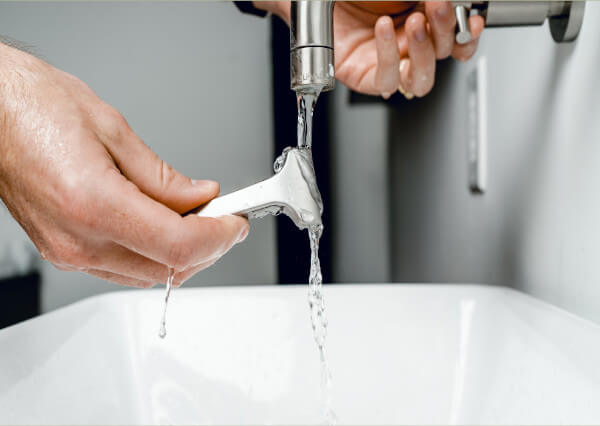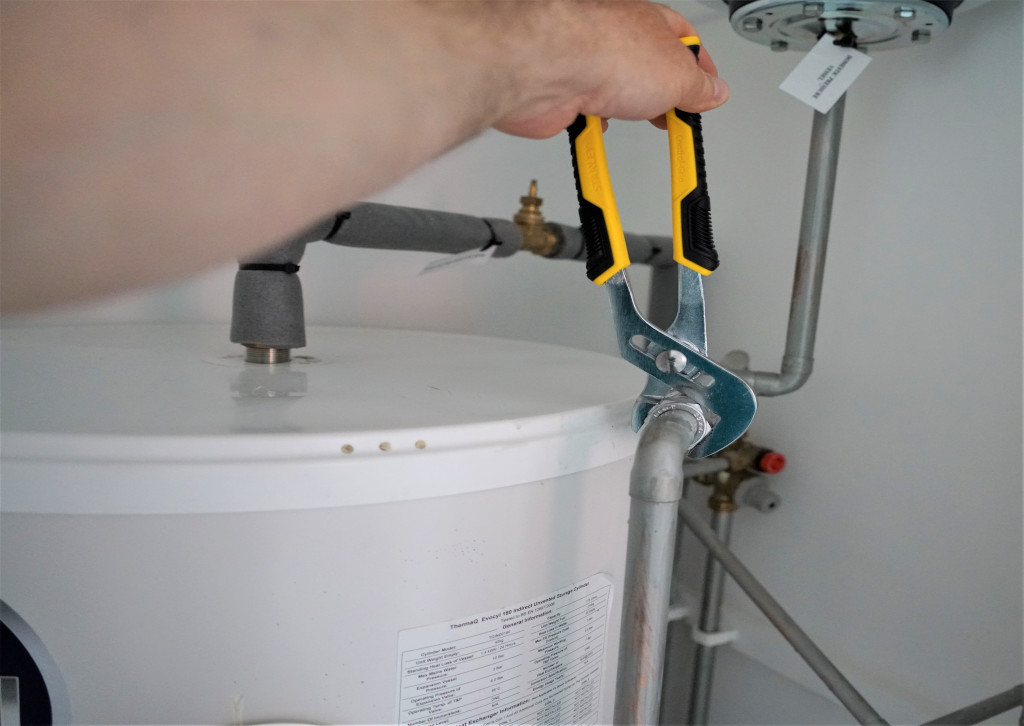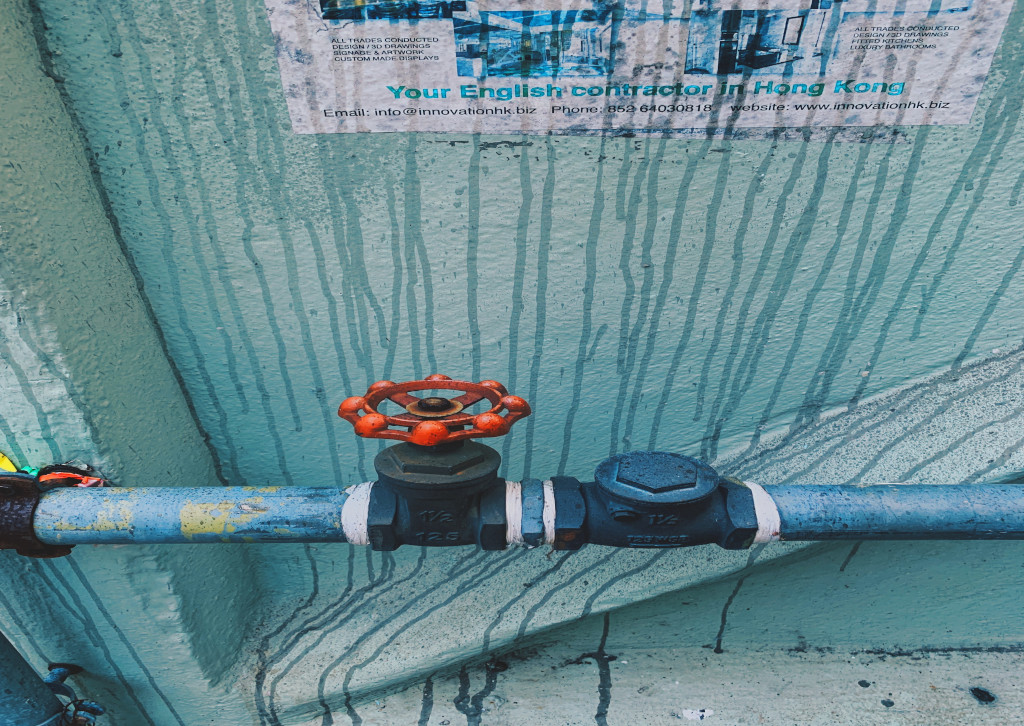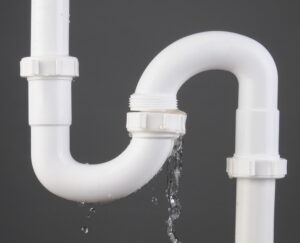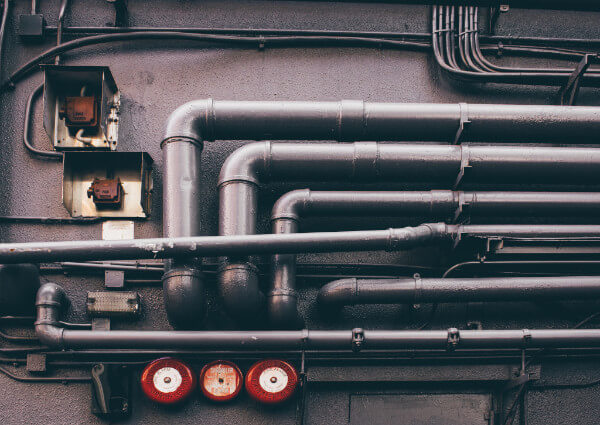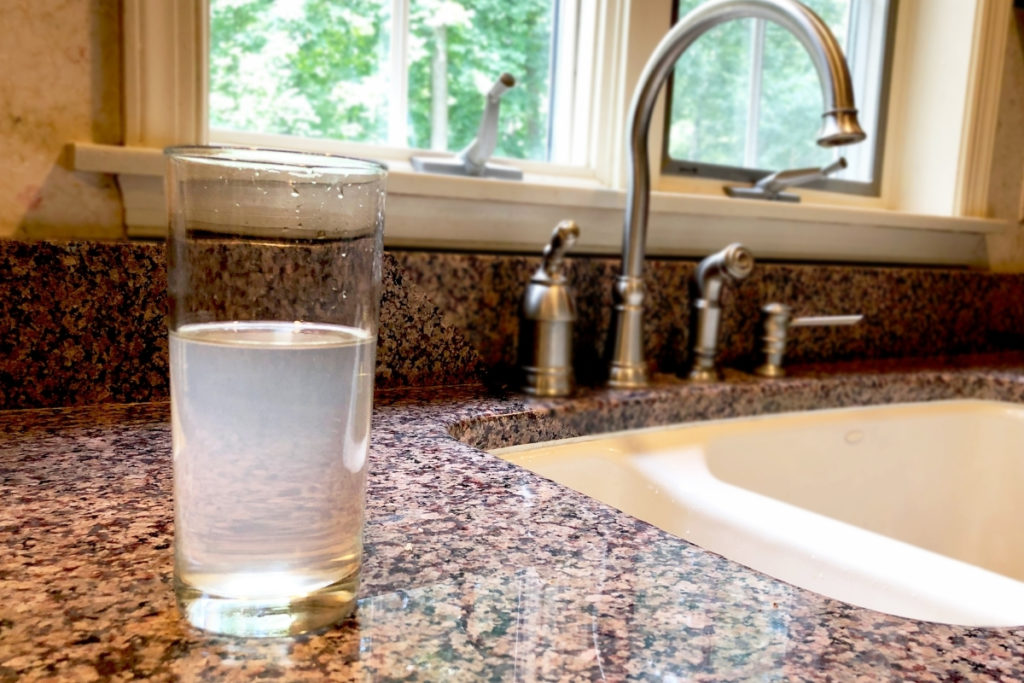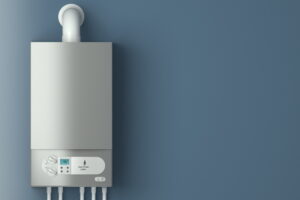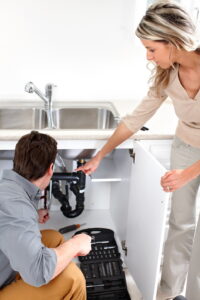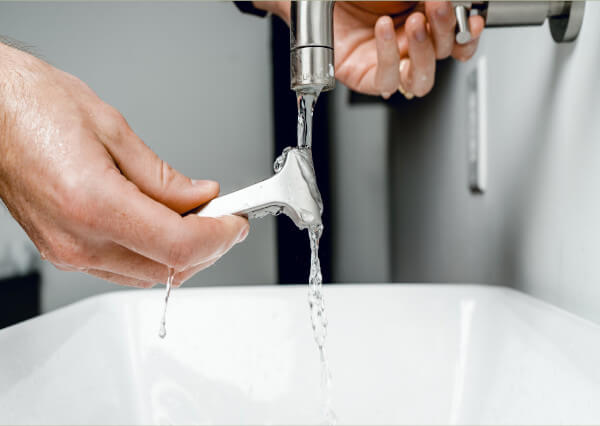
At Best Plumbing, we’re your one-stop-shop for all leak detection services. From locating leaks to solving the problem to providing long-term solutions, we’re here to help. Rather than shopping around for multiple experts to address different aspects of your leak, we’ll do it all. Finding The Problem There are a few key symptoms to be…
Category: Home Plumbing
No Plunger? No Problem: 5 Ways to Unclog Your Toilet Without a Plunger
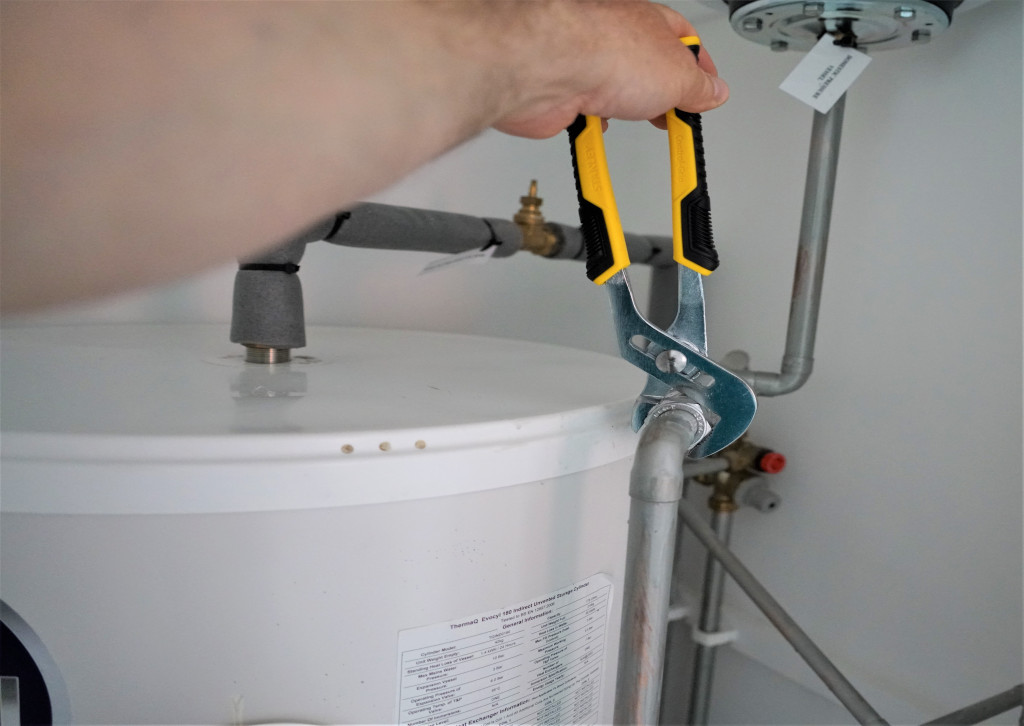 The world’s most common fears include heights, clowns, enclosed spaces, and needing to unclog a toilet when there isn’t a plunger nearby. It always happens at the most inconvenient time — at your in-laws’ house, during a work meeting, during a holiday, on a date…
The world’s most common fears include heights, clowns, enclosed spaces, and needing to unclog a toilet when there isn’t a plunger nearby. It always happens at the most inconvenient time — at your in-laws’ house, during a work meeting, during a holiday, on a date…
We wouldn’t wish the panic of rising water with no solution on anyone. That’s why we’ve detailed the best ways to unclog a toilet without a plunger below.
Water That’s Hot, but Not Boiling
It’s really important to differentiate between the two here. Hot water will unclog the toilet by melting away the blockage. Boiling water can cause toilet bowl ceramic to crack, which is a much more irritating issue to deal with.
Get as big a bucket you can handle and fill it with not-quite-boiling water. The movement of the water combined with the heat will help remove and flush the clog.
Dish Soap
Dish soap is designed to break down grease and other food waste it comes into contact with. Because of this, it’s almost just as effective at breaking down toilet clogs. If you have the time to let it sit and wait, dish soap can help to unclog a toilet.
Squeeze at least a cup of dish soap into the toilet bowl and let it sit for 30 to 40 minutes. After that, check to see if the water has started to lower in the bowl, which is a sign that the soap is working. If the water is lowering, then you can feel comfortable trying to flush!
Epsom Salt
Epsom salt isn’t something that everyone has on hand, but if you do have it lying around, it can work in a pinch. When poured into a bowl, it creates a fizzy chemical reaction that can help unclog and clear drains. Give it about 15 minutes to do its thing before you attempt to flush again.
A Toilet Brush
This is for desperate, last-ditch efforts only. Hold the handle, push the brush into the drain hole, and start to pull your arm back and forth. Don’t get too over-exuberant to the point of harming the toilet, but do get vigorous. This can be kind of gross, so we recommend wearing gloves or old clothes in case of splashing.
Call the Pros at Len The Plumber
If nothing else works, it might just be time to call on the plumbing professionals employed at Len The Plumber. We’re always standing by to answer your call!
Add Cleaning Your Bathroom Fixtures to Your Beauty Routine
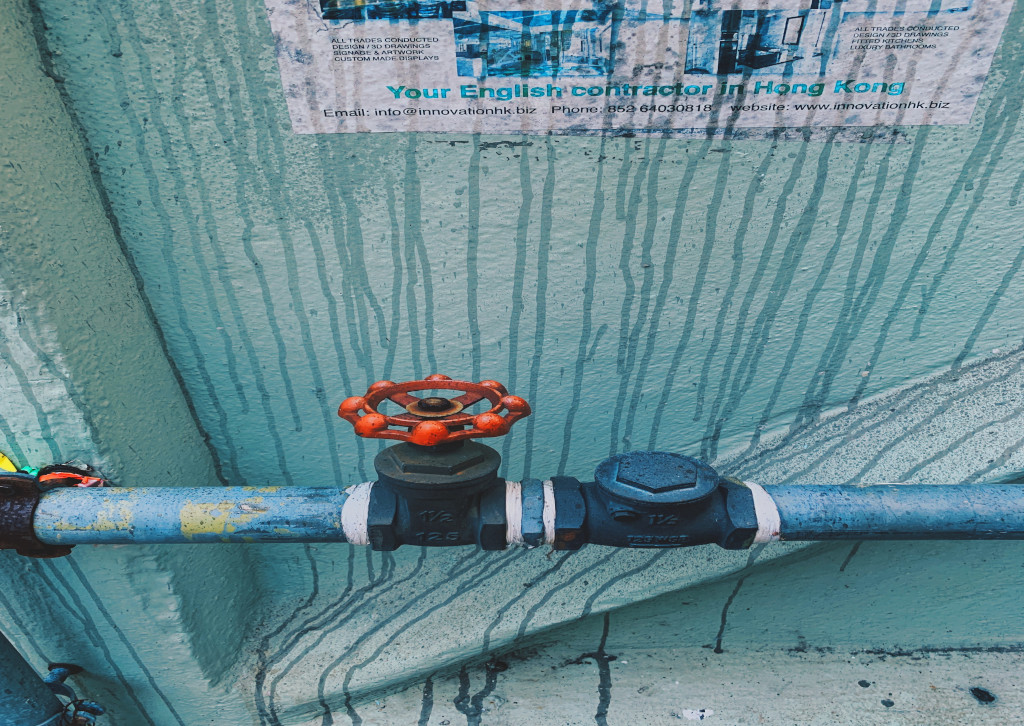
You’ve got your loofah sponge and your deep conditioning hair rinse, but your bathroom fixtures could use a little self-care too. Here are some easy ways to make sure your bathroom fixtures are clean and functioning for their best life.
Head to Your Shower
As you face your shower and let the water stream down on your head, how many of us have actually opened our eyes and looked at how dirty our shower head actually is? Areas with hard water can plainly see the build-up of calcium and other minerals that might be blocking your shower head spray. Not to mention, icky bacteria and mildew that can thrive on your shower head. And if all that hasn’t convinced you of the need to scrub down your shower head, how about the errant spray from the shower head that hits in all the wrong places because the tiny holes have been plugged with gunk?
Okay – ready now?
Shower Head Cleaning Options
- You can clean your shower head without taking it down. Simply fill a plastic bag with white vinegar and attach it to the shower head using a rubber band. After about an hour, remove the bag and turn on the shower to rinse. Voilà!
- For really crusty shower heads, use a wrench wrapped in a towel to protect the shower head finish and detach the head from the arm. Dunk the shower head into a mix of 2 cups of vinegar to 4 tablespoons of baking soda and leave it there overnight. Use an old toothbrush to give it a good scrub and a pin to unclog the holes. Rinse and replace.
Down the Drain
Lots of self-care happens over top of your sink. And your sink’s drain pays the price of beauty. Have you noticed water isn’t draining from your sink efficiently? That’s because all that toothpaste, shaving cream, bits of hair and soap scum are settling in your drain. So, while you’re rinsing your pores, your water can’t pour down the drain. Here’s what you can do:
- Remove any debris in the drain that you can see. Pull up the stopper and clear away hair or chunks of toothpaste that might be blocking water from flowing down the drain. Tougher clogs might need the help of a drain snake. If your drain is blocked and not easily cleared, you may need the help of a professional plumber who can safely clear your drains without damaging your pipes or creating a larger issue by pushing a blockage farther down your system.
- To help mitigate foul odors coming from your drain, try using hydrogen peroxide or other non-corrosive/natural cleaning products to help break up the bacteria inside your drain. Avoid hard drain cleaners that might temporarily help your drain but do longer-term damage to your pipes.
- You may also hot water, vinegar, and baking soda to do the trick.
Potty Talk
Despite a bad rap, our toilet bowl is an MVP in our home and should be treated as such. Regular cleaning will reduce odors and increase the longevity of your toilet. Here’s how to give the porcelain god the TLC it deserves:
- When cleaning out the bowl, reduce the water by pouring a half bucket of water into the bowl. This will allow for your disinfectant to not dilute and more properly sanitize the bowl.
- Use antibacterial cleaners that contain bleach. Scrub thoroughly and rinse. Use a spray disinfectant on your toilet brush prior to storing.
- Wipe down the exterior of the toilet with wipes (do not flush) or with a sponge/paper towels and disinfectant.
- Start with the toilet handle, then work your way down to the seat and exterior.
Clean bathroom fixtures are better for your health and the cleanliness of one of your most-used rooms. A dirty bathroom fixture can make it malfunction; but sometimes bigger plumbing issues are to blame. If your bathroom fixtures are backing up your morning routine, call the experts at Len The Plumber.
Whether you are looking for routine maintenance or need a major repair, our professionals will be able to help you no matter how big or small the problem is. Contact Len The Plumber today by calling (800) 950-4619(800) 950-4619.
Did you miss our previous article…
https://agapeplumbing.net/?p=114
How to Help Your Plumbing System
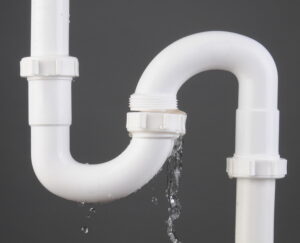 We know there are many factors to consider when you’re thinking about keeping your home in top shape. This is something that you probably work into your home in various different ways. We want you to make sure that you’re thinking about this in regard to your plumbing system as well.
We know there are many factors to consider when you’re thinking about keeping your home in top shape. This is something that you probably work into your home in various different ways. We want you to make sure that you’re thinking about this in regard to your plumbing system as well.
There are so many simple things you can do to improve your plumbing system. We’re going to list out a few vital ones today.
If you need expert plumbing service, our professionals can come out to your home to do the work. We’re the professionals you want when you need a great plumber in Suprise, AZ.
What to Do to Help Your Plumbing
These are a few things you can do to help your home’s plumbing system. We’ve broken it down into three vital steps.
-
Know What Can Go Down the Drains
Step number one is just knowing what can go down your home’s drains. Getting informed is the proper first step in almost every process you want to take on. Let’s take a crash course. Here are a few things that you should never allow to go down your home’s drains.
- F.O.G. (fat, oil, and grease)
- Coffee grounds
- Pits, seeds, etc.
- Eggshells
- “Flushable” wipes
- Paper towels and cotton balls
As long as you make sure to avoid these items, you can dodge a major issue with your plumbing system.
-
Avoid Chemical Drain Cleaners
You need to make sure that you’re avoiding chemical drain cleaners at all costs. Chemical drain cleaners are a no-go because they damage your pipes. You might think that chemical cleaners are the simple solution that’s going to help rectify a problem ASAP, but they’re actually more likely to prolong or worsen plumbing issues.
Yes, you might think a clog is gone after you pour the chemical drain cleaner down the sink drain. It might actually even go away for a little while. The real problem lies in what comes after this.
Most of the time, chemical drain cleaners don’t get to the root of the issue the way a professional plumber can. They leave behind some residue that can create a clog in the future.
On the other hand, your chemical drain cleaner might do too good of a job. Once it’s done eating away at a clog, it’s going to start eating away at the pipe itself. Corrosion is an issue that can lead to terrible leaks in your home. This is why professional cleaning is always the answer.
-
Invest in Drain Strainers
You should invest in strainers for all your drains. If you’re not going to put one on every different drain in your home, we suggest putting one in your shower and one in your kitchen sink at a minimum. These spaces experience high traffic and can be susceptible to hair, grime, and food particles that cause clogs. A simple, inexpensive strainer can save you a lot of time, grief, and money.
Contact The Trusted Plumber when you’re looking for great plumbing services in the area.
How To Test Your Sump Pump
Basement flooding is all too common in the Mid-Atlantic—especially with the amount of rainfall we experience! It is important to guard your home against flooding and a cost-effective way to do this is by installing a sump pump and a backup system. However, for those homeowners who already have a sump pump and backup as the first line of defense, it’s important to make sure your system is working before it’s too late.
How To Check Your Sump Pump
Here are a few tips for you to check if your sump pump is working.
- Locate the outside pipe that catches the water as it drains from the pump. Make sure the inside of the pipe doesn’t have any dirt or debris clogging the drain.
- Fill a 5-gallon bucket or a large cooking pot with water. Slowly pour the water into the sump pit and watch the water level within the pit.
- The float on the sump should rise and the pump will kick on well before the water reaches the top of the pit. As the pit empties, the system should turn off.
- If the float doesn’t rise or the pump doesn’t turn on/off automatically the pump should be further inspected.
- This may seem like common sense, but make sure the pump is plugged into a working outlet. Sometimes damp areas of a basement can cause electrical outlets to trip.
- Repeat these steps every 2-3 months!
What Happens If the Power Goes Out?
It’s also important to know that sump pumps rely on electricity to operate.
If the power goes out your pump will not work so consider installing a battery-powered backup system. This will kick on as soon as a power outage occurs—a charged backup system can last up to 7 hours. Installing a battery-powered backup system is like getting extra insurance on your system. It’s always a good idea to have a backup in case of a power outage! You can also consider a water backup system. We install both kinds of sump pump backups and are happy to help you decide which option is best for your home.
Install a Sump Pump in Your Mid-Atlantic Home
If you don’t already have a sump pump, and you’re tired of mopping up water and propping up your basement belongings to prevent water danger—not to mention the associated problems with mold and excess humidity—then you should consider installing a system.
To help protect your home and belongings, contact Len The Plumber today. And as always, we’re here when you need us 7 Days A Week, with no extra charge for evening or weekend appointments.
Did you miss our previous article…
https://agapeplumbing.net/?p=96
Five Signs Your Home Needs a Main Water Line Repair
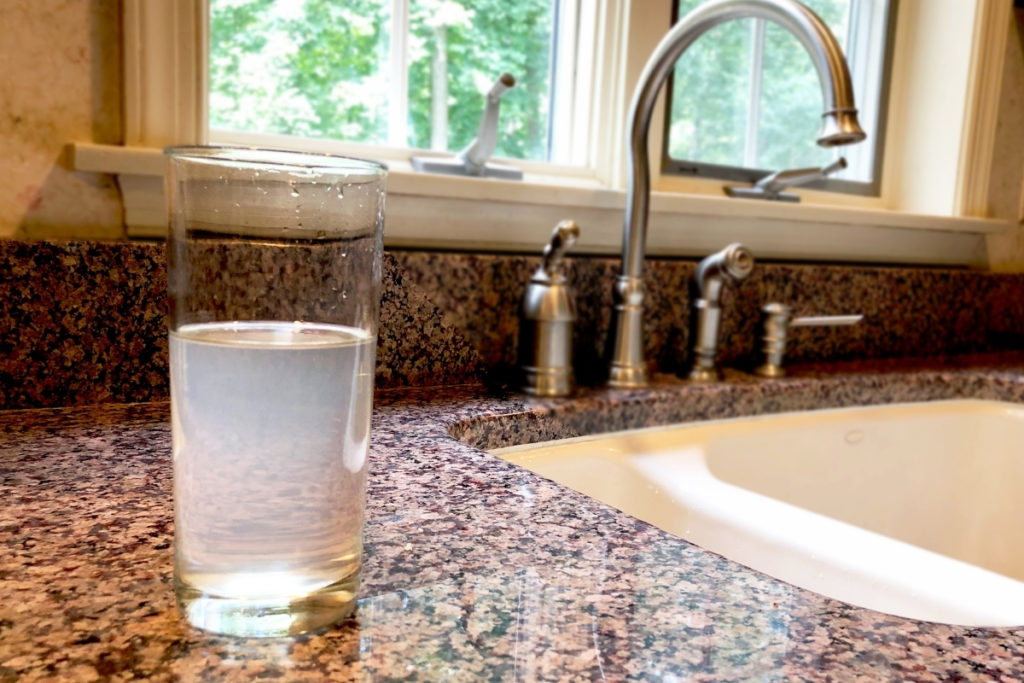
You are probably pretty familiar with the pipes under your sink or the drain in your shower, but you’ve likely never given a second thought to the pipes that connect your home to the public water and sewer system. Those pipes pull heavy duty for your home. Check out these five signs you have a problem with your home’s main water line.
- Your water bill increased significantly.
Summer water bills are often higher than normal because of watering the lawn, filling the pool, and even showering more frequently. But, if your water bill seems out of the ordinary, you may have a leak in your main water line.
- You are hearing strange sounds coming from several of the pipes in your home.
Are your pipes talking to you? If you are hearing gurgling from your sink when you flush the toilet or the reverse, that’s a sign of a more systemic plumbing issue.
- You’re finding sinkholes or cracks in your foundation?
A leaking main water line can be the cause of major damage to your home’s structure and a source of erosion of your landscape.
- Your home has low water pressure at all the faucets.
Low water pressure can be a sign that your main water line is clogged. Clogs can happen from household waste and also from tree root infiltration. Both a clog and tree roots can put pressure on these pipes and create cracks. If not addressed these cracks can evolve into a full break of the line. Did you know the repair of a water line break outside your home is the homeowners’ responsibility?
- Your water is cloudy.
While there are a few different causes of cloudy water which can include a problem with that particular fixture or issues with your water heater tank, cloudy water can also be caused by disintegrating or damaged pipes.
If your home is experiencing any of these issues, you might have a problem with your home’s main water line. At Len The Plumber, our experts can get to the root of the problem using diagnostic cameras and the most advanced plumbing tools. And, we have the experience to make sure we repair or replace your main water line quickly to minimize the damage and restore your confidence.
Contact us to schedule a main water line service today. From D.C. to Baltimore, Northern Virginia, Delaware and the Philadelphia area, just call Len The Plumber, your local plumber with same-day service, 7 days a week!
Did you miss our previous article…
https://agapeplumbing.net/?p=53
Do Tankless Water Heaters Have Any Drawbacks?
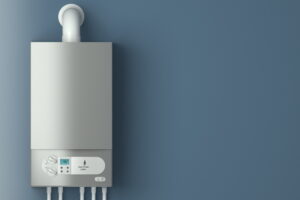
If you’re asking this question, it means you’re likely looking at water heaters in Surprise, AZ as a replacement for your old one. If this is the first time you’ve considered a tankless water heater, we understand why you have plenty of questions and maybe a touch of skepticism. After all, many installers talk up the huge benefits of going with a tankless water heater—we certainly have
But any reputable plumbing contractor will tell you that a tankless water heater isn’t the right installation for every home and every situation. Sometimes the right storage tank water heater will do a great job for a household.
Tankless water heaters do have several drawbacks that may affect your decision to purchase one. Some of these won’t apply to your house, or the benefits will far outweigh them. Make sure you work with our professionals to help you with the choice so you have the best water heater for your home.
The price
This is simple: tankless water heaters are more expensive units than conventional storage tank water heaters. Because of their high energy efficiency and extended service lives, tankless systems can pay back their cost over only a few years. However, the initial price may not match your current budget plans. Talk to our technicians about the long-term savings and your best options.
Efficiency concerns in larger homes
A tankless water heater is best suited for small and medium-sized households. This is because, although they won’t run out of hot water, they can be overwhelmed if multiple hot water taps are on at the same time. If your household has multiple showers running in the morning or you have several hot water-appliances that must run simultaneously, it may cut into a tankless water heater’s efficiency. One solution is to install more than one tankless water heater for a larger house, but this also affects the budget.
Hard water concerns
If a home has hard water, it may have a negative effect on a tankless water heater. Hard water in general is harmful to any type of water heater, but even a small amount of mineral deposits inside a tankless unit will harm water flow. For homes with hard water that don’t already have a water softener installed, it may be necessary to include a water softener installation along with the new tankless water heater.
Slower hot water delivery
A storage tank water heater has a supply of hot water ready to send to the taps. A tankless water heater must heat up water when the taps come on, so there is usually a longer delay from when the tap turns on until the water reaches it.
Temperature fluctuations
The water temperature coming from a tankless water heater has more fluctuations than from storage tank water heaters. You might feel an initial rush of hot water, only to have it lose temperature and quickly heat up again. Most people soon become used to this, but it is technically a drawback.
Find out more about the ideal new water heater for your house. Just Trust The Trusted Plumber!
Did you miss our previous article…
https://agapeplumbing.net/?p=44
4 Plumbing Problems That May Not Look Like Emergencies, But Are
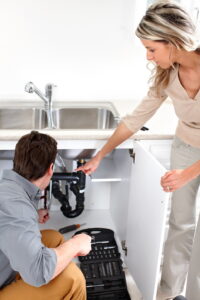
What counts as a “plumbing emergency” in your home? The easy answer to this is “Whatever feels like an emergency to you, the homeowner.” It’s a good adage, because even if you’re wrong about whether the plumbing problem you’re facing is an emergency or not, you’ll be glad you had the trouble investigated. Better to be cautious and avoid a big disaster.
There’s more to defining emergency plumbing needs, however. Sometimes, plumbing emergencies hide behind what look like lesser issues. Things that just don’t feel like big deals. Troubles you can get to later. These are the truly tricky and dangerous emergency plumbing jobs, because you’re much less likely to treat them as such and call us for emergency plumbing in Glendale, AZ to get the issue fixed before it becomes a major problem.
To help, we’ve listed four plumbing problems you may encounter that may seem mild, but are a good reason to call our plumbers ASAP.
#1. Water spots on the ceiling
Discolored spots on the ceiling are leaks, and you probably know that. If you notice these spots developing on the ceiling of rooms of your two-story house, it might seem like something you can get to at a more convenient time. But these leaks are serious business: they’re likely coming from bathroom plumbing (check to see which room is above the discoloration) and mean that water damage has already occurred and spread. This not only wastes water, it weakens the building material and could even cause collapse. The quicker this is solved, the less expensive and extensive the repairs.
#2. Multiple slow drains
A slow drain is an annoyance, but because it’s not a full clog, people will often ignore them or simply deal with them rather than call a plumber. A slow drain isn’t usually an emergency, although we recommend you move sooner on this rather than let it get worse. But when multiple drains in your house are slow, something is wrong deeper in the drainage system, and it might be trouble with the sewer line. Sewer line repairs are always emergencies, since you may end up with no drainage at all or sewage backing up into the house.
#3. Red discoloration in the hot water
You’ll see a reddish color in the water from a tap that hasn’t been turned on in weeks, but after a few seconds it will clear up. If you see this discoloration coming from a hot water tap and it doesn’t clear up, it probably means the water heater is rusted through and on the verge of a full breakdown. At this point, the water heater will probably need to be replaced, and you’ll want plumbers on the job fast before your hot water is gone.
#4. Water pressure suddenly drops
The water coming from the taps is abruptly much weaker than before. Maybe not impossible to work with, but noticeable. This might be a municipal issue (see if the neighbors have a similar problem). If it’s not, we recommend calling for plumbing assistance right away, as there may be trouble in the home’s water main.
Call The Trusted Plumber no matter what you need for plumbing help. We have emergency plumbing available!
Always check our latest articles at…
https://agapeplumbing.net//category/home-plumbing
